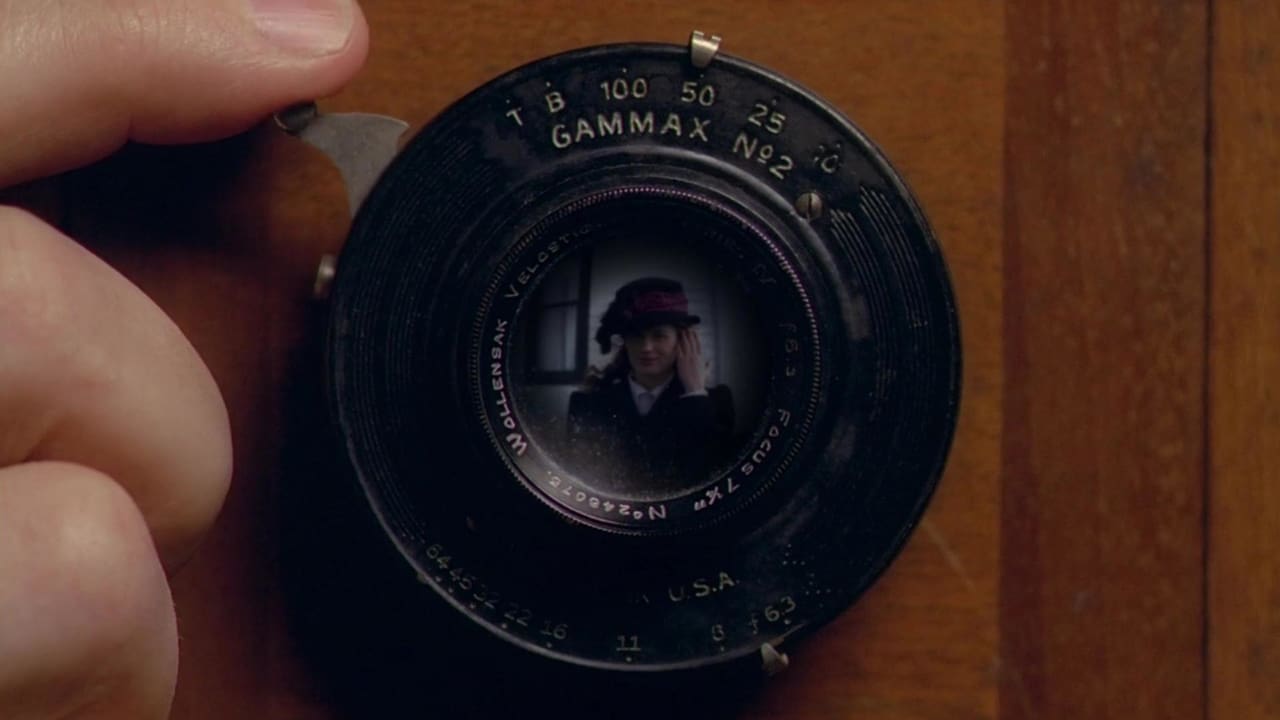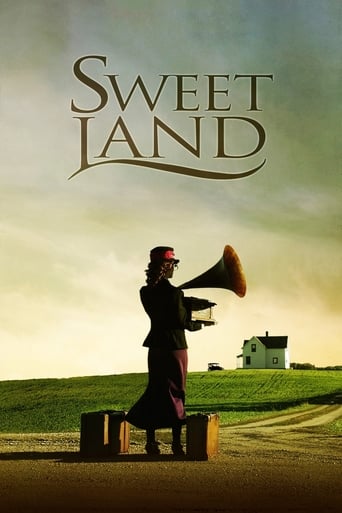

Very very predictable, including the post credit scene !!!
... View MoreA very feeble attempt at affirmatie action
... View MoreThe movie turns out to be a little better than the average. Starting from a romantic formula often seen in the cinema, it ends in the most predictable (and somewhat bland) way.
... View MoreA clunky actioner with a handful of cool moments.
... View MoreWell written, acted and just a stunning and moving film. The soundtrack also helps to draw us in and move us along in this very real story of two people who find love through many trials, some wholly unnecessary. Give huge kudos to Elizabeth Reaser for her noteworthy efforts in bringing Inge to life. Tom Guinee as Olaf also does a great job at making us feel his isolation, determination and especially how he falls in love with Inge, as well as his naiveté and shyness. I particularly liked the way the film begins in the near present, moves back into the past and then ends in the real present - well handled and effective storytelling. The locations and cinematography also make this film a must-see movie. Really, it is surprising, and saddening, that such a beautiful film got so little notice.
... View MoreThis film is most absorbing, but you have to be willing to watch a film that unfolds slowly. It is magnificently acted with two young actors -- Elizabeth Reaser and Tim Guinee as the leads. There is relatively little dialogue, and much of it is in German or Norwegian with no subtitles, which conveys to the audience the difficulty that they have communicating with each other.The two leads are heavily dependent upon the expressiveness of their eyes, which they do with great delicacy. The film is well-paced and beautifully photographed. The only difficulty I had was catching on that the action took place in three time periods, not just two. You had 1920 when Inge, a mail order bride comes to rural Minnesota. (The scenery looked authentic, and since some of the credits are for institutions in Montevideo, MN, a town to which I once traveled, I can understand the veracity of the setting.) The second time period, which is not so clear, is when Olaf, Inge's husband has passed away, and the third time period is more or less the present when Inge's grandson is faced with a decision of whether or not to sell the farm. There are some visual clues to separate the second and third time periods, but they are quite subtle.The second is probably around 1960, marked by the glasses frames that Inge, as an old woman is wearing; and the third, by a jacket that her great-granddaughter is wearing. Otherwise, the time differences are not totally clear, particularly at the beginning of the film, where you have flashbacks.The film struck me with its apparent accuracy. Twenty years ago, I knew an elderly Norwegian immigrant who had been the wife of a North Dakota farmer, and she had told me stories of farm life in the 1920s and 1930s. It required about 15 people to operate a steam threshing machine, and she told me about preparing lunch each day during the harvest season for 20 men; and about reading by candlelight at night; using an indoor pump at the sink; and seeking to keep warm during the brutal North Dakota winters. I visited the woman and her daughters and grand-daughter in her modern apartment which was a far cry from life during her youth. It blows me away to think about the change in this one woman's singular life from her youth to her later years -- greater changes than in any prior period in history. (In 1946, there were still more horse drawn tractors than mechanized ones in use in the U.S., and there wasn't much electricity in rural areas until the New Deal.)Although I may have missed some, I perceived no wrong notes in the film which added to the enjoyment of watching it. A most charming film from beginning to end.
... View MoreWelcome to the land of Garrison Keillor. This is a very subtle and beautiful film about a topic that my mother would have been extremely aware of. Being of German descent (a family that began farming in the late 1800's), she and her brothers put up with a lot during the war. They had to make the decision at that point to not speak German, even among themselves. While they weren't put to the test as much (since their community was mostly German), it was always an issue. I think what makes this film is that there is little like it in the film world. The people at those Lutheran, soft-spoken, men-of-few- words farmers who go about their business, trying to stay ahead of the bank. The specter of socialism scares the banker because he can divide and conquer and take the land away from them without much effort. There's a lot of the same fear going on these days and people are awfully forgetful about what brought us here and awfully trusting of the potentially oppressive financiers. This film is so quiet and yet has such an edge to it. It's about true love and trust and how we pass our heritage on to others. I will add a totally irrelevant note. I had the pleasure of actually working in theatre with two of the minor characters during my college days in the 70's. Also, some fine work by Guthrie Theatre alums. See this film. You won't be disappointed.
... View MoreUpon watching the film and even after, it was quite different from anything I have seen about how the Germans were treated in the United States after the First World War. Watching the film, and seeing how the town minister acted upon learning the woman was from Germany, it seemed as though he promoted bigotry, and as a minister of the word of God, he really has no place doing so (one man's opinion), but I guess things happened like this no matter what. The reason I felt the way I did, which is in favor of the German woman, was because what real harm could she really possess? I mean, my family came from Germany before the turn of the last century, so I would assume that they could have had this bigotry happen to them, which makes me feel the way I do about the woman in the film. I believe if I had been alive during the time period portrayed in the film, I would have most likely been an outcast as well, for my beliefs could weigh me down. The Lord says we should accept people as they are, and I know I haven't done my best to suit such, but when two people love each other, as these two in the film came to do, doubt shouldn't be about.Even the world in which we live, there are cynics and there are lovers, the best of which are those that love. I know people from each side of the aisle, so to say, and they each have a great argument, but at the end of the day God teaches us to love unconditionally, which sometimes is hard to do and therefore, I know what the minister was going through. It's all a part of each of our lives that we have to outgrow. God willing, we can learn to love and accept without end.
... View More